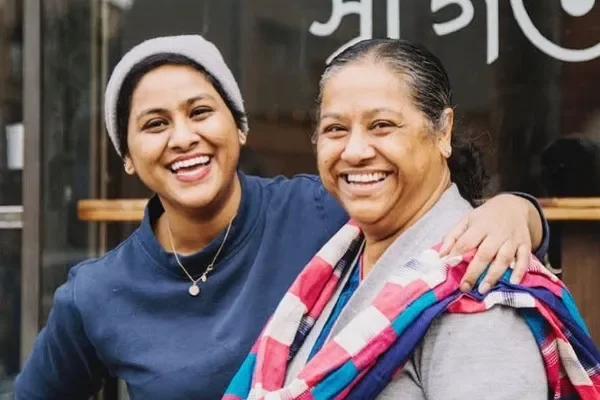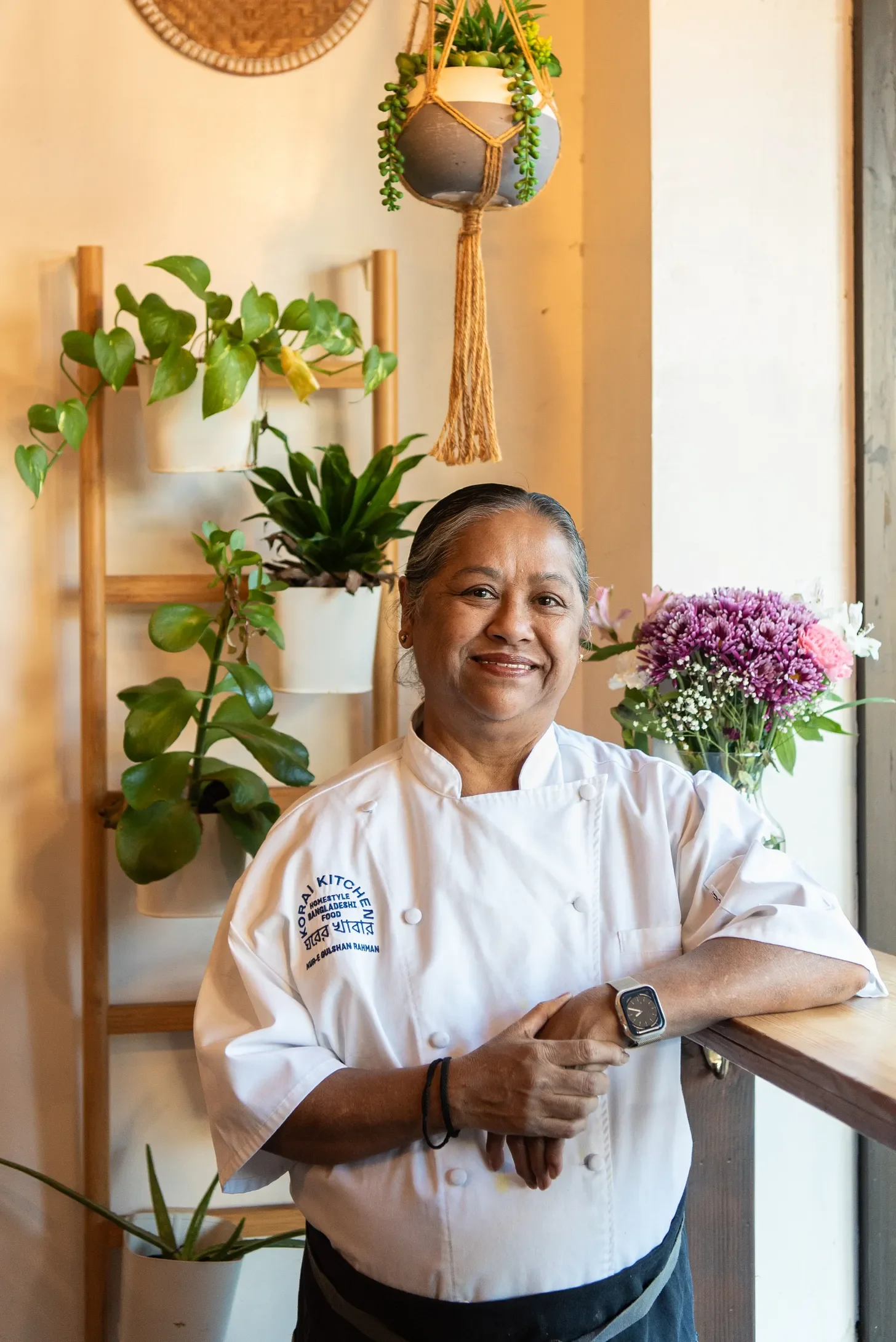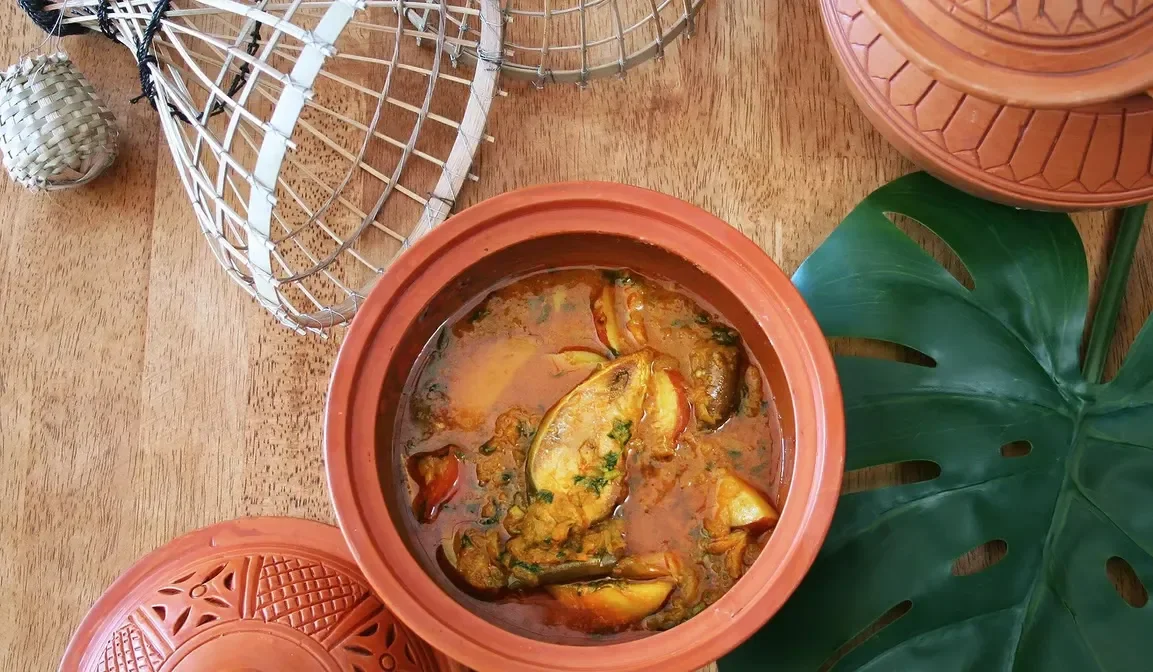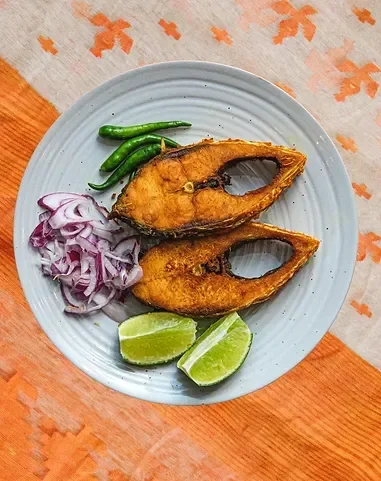You Look Like You Could Eat Something
I’ve been sitting on this story for far too long - it was originally commissioned for a local food publication and then killed, due to what my editor deemed ‘an overwhelming amount of local press’ on this restaurant. I was bothered at first, because I genuinely believe there’s no such thing as too much press on people who are doing an amazing job and absolutely killing it in this post-apocalyptic restaurant landscape.
But then I realized, it all works out in the end, because I’d rather hype up Korai Kitchen any day of the week, regardless of what any editor might think readers are or aren’t interested in. I will be the first to admit these ladies deserve as much press as they get, which is quite a bit. After all, they’re a gem in the local dining landscape, with great cuisine and a genuine heartfelt love for the community that radiates through their space, their service, and their food.
My hunch is that local readers here in JC, as well as across the States, will welcome (another) peek into the heart of such a unique and beloved project, so here we are.
Earlier this week they were featured on CBS’s The Dish, which is well worth a watch. Even better, if anyone reading this would like to join me for a meal sometime, please know the offer always stands and my DM’s are always open!
When I wandered into Korai Kitchen for the first time it was an icy day in February. Staff were just arriving through the back door, floors were being swept and the early clamor of setting up for service had begun to hum through the room.
I felt at home immediately - not just because there’s a comfortable flow in the thrum of pre-service energy, but because Nur-E Farhana, half of the dynamic duo behind Korai Kitchen, put me instantly at ease with a giant hug. Her mom, Chef Nur-E Gulshan Rahman, the powerhouse responsible for Korai’s tremendously successful cuisine, handed me a chai to take the chill off as we settled in for a chat.
*For clarity throughout the duration of this article, since both of the duo share the same first name, I’ll refer to them as Chef and Nur-E, respectively - despite the protests, I adamantly stick to the notion that the title of chef is well and truly earned.
“In the beginning, I never said I’m a chef,” Chef Nur-E Gulshan Rahman said to me with a humble grin after I congratulated her on the recent James Beard Best Chef nomination. Of course, the Foundation would disagree with that statement, as would the diners of Jersey City. Korai Kitchen is brimming with an endless parade of delicious, fragrant Bangladeshi dishes that pour out of the kitchen, all the handiwork of someone who can only be called a chef. And I really do mean endless.
“Bangladeshi feasts are massive,” Nur-E explained to me. “You start eating, and you just don’t stop.”
Korai Kitchen is a remarkable place — the kind of gem you can only dream about finding in travel memoirs or far-flung articles about romantic mom-and-pop city restaurants. It has all the hallmarks of a classic story: a tenacious woman who loves to cook, a ‘for rent’ sign in the window down the street, and the lucky sudden notice of big institutions like the James Beard Foundaton and the New York Times. But to chalk up the businesses success to movie-script perfection would be to rob it of its most endearing, hard-won, qualities of hard work and endurance.
For starters, Chef Nur-E didn’t have an ounce of formal training or restaurant experience when she decided to open Korai Kitchen — at the age of 61. She’s completely, remarkably, self-taught.
Photo courtesy of NJ.com
“I’ve been cooking almost fifty years,” she shared. “After I got married, I learned. I’d cook every day, sometimes make a mistake. The next day I’d fix it. When I was young, my mother never let me into the kitchen. She said, ‘you should study.’”
“Whatever I cook, I cook from my heart,” she continued. “I saw that my grandmother was cooking like that, my aunt was cooking like that, my mom was cooking like that. I tried to follow their recipes. That’s the experience I have. And that’s why it makes me feel like I’m not entitled to tell everyone I’m a chef.”
At this point in the interview, I raised my eyebrows protest.
“It’s in print on the James Beard website!” I exclaimed, and everyone laughed, but she didn’t budge, brushing it off with a laugh and a humble, “I don’t know, I don’t know.”
Her daughter stepped in, adding, “I just really want to highlight that there are a lot of people who have ben cooking for many, many decades, and I respect anyone that’s been honing a craft for so long. But to take a skill to take it to the next step, which is to translate that skill into what she does every single day here at the restaurant. It’s long hours, it’s physically demanding, it’s grueling. You don’t do that when you should have retired or something, you only do that because it’s sacrifice. It’s real because you love it. It’s because you love feeding people.”
“It’s real because you love it. It’s because you love feeding people.”
This is the heart, soul and secret behind Korai Kitchen. And the food is incredible. Bangladeshi food, which can be hard to find across the US, has its own rich and distinct culture, an entirely separate experience from both Indian and Pakistani cuisine. In fact, when the restaurant started offering delivery, they pushed both Uber Eats and Yelp to create a new category for Bangladeshi food.
*An amazing primer if you’re new to the cuisine, like myself, is Dina Begum’s The Six Seasons of Bangladeshi Cuisine.
During the pandemic and for several years after, Korai operated as takeout only, and the community still couldn’t get enough. Its homestyle Bangladeshi comfort food is just good for the soul. The intention and care are evident.
*At the time of this writing, I have not yet attended a dine-in Dawat dinner, but I have a highly coveted upcoming reservation two weeks from now, so please stay tuned for an update! I have, however, thoroughly enjoyed takeout with friends on many occasions and highly recommend.
Photo courtesy of Korai Kitchen
Despite the incredible quality of the food itself, getting the doors open was no small feat.
“We were very much built from the ground up,” Nur-E said. “No investors, no funding. We looked at the landlord and we convinced him. We were really persistent, and finally he decided to lease us this space. We had six weeks to turn it around - this used to be a deli, actually. But we turned it all around.”
“A lot of people tell me, ‘it’s so nice you’re helping your mom,’” Nur-E continued. “But no. This is something we’ve built together. I think people forget that because she’s so cute and a grandma and everything, but this is two women building a business. We’ve actively, strategically scaled this over six years. It’s hard, and it takes a lot of strategy.”
“I think people forget that because she’s so cute and a grandma and everything, but this is two women building a business. We’ve actively, strategically scaled this over six years. It’s hard, and it takes a lot of strategy.”
The hard work and effort are evident. Despite the difficulty of starting and operating a restaurant, which is notoriously formidable even in the best of times, Korai Kitchen has made it through the last six years not just surviving, but continuing to grow.
“We always had full faith in the product itself,” Nur-E said. “If anyone was going to succeed, it was going to be her.”
It was clearly worth the risk. When the nomination for the James Beard Best Chef award was forwarded to Nur-E’s Instagram DM’s, she called her mom “sobbing. Ugly crying.”
“I thought something bad had happened to her!” Chef Nur-E exclaimed. “I said, ‘just tell me what happened!’”
“I thought it was a mistake,” her daughter admitted with a laugh. “I got a DM saying ‘congratulations to you, congrats to your mom,’ and I started responding to say, ‘I think you made a mistake.’ Right before I hit send I got another message saying, ‘Congrats to your mom on JBF!’ and I started furiously Googling. When I saw her name I just started freaking out, you know, because it’s not like we were prepared for it. I have no idea who nominated us, which makes it even more special.”
“We’ve always been fortunate to have people who championed my mom’s food,” she continued. “A lot of restaurants have PR teams and we’ve barely had money to make these cards!” She illustrated the point by holding up a handful of marketing flyers. “So this was so wild.”
#nochickentikkamasala
A lot of the restaurant’s success has come from anonymous sources who resonated with the food, as was the case with their first writeup in the New York Times.
“We didn’t know who it was,” Nur-E said about the article. “We found out later that it was one of our guests who had been coming who was talking about it to someone else, and that’s just how it happened. I had people asking me, ‘Who do you know at the Times?’ and I was like, ‘I don’t know anybody. Do you think I know somebody?’”
The article was published on January 1st, a typically slow day for service.
“I saw the roads were nice and quiet,” Chef said. “So I said, I’m going to cook a little less today. I’m going to buy less vegetables today. And I cooked less. But before I even opened the gate, I saw a long line! And I said, ‘Oh my god!’”
“And we were short staffed because we had told everyone to take the day off,” Nur-E added, looking at her mom. “It was literally just you and me!”
The Korai team is quick to shine the light back on their community of day-one supporters in Jersey City, which they’re particularly grateful for helping them through the pandemic.
“They’re the only reason we made it through the pandemic. They just order from us all the time. We’re so fortunate,” she said.
“They’re the only reason we made it through the pandemic. They just order from us all the time. We’re so fortunate.”
If you’re not a current regular at Korai Kitchen yet, don’t worry. Their Dawat dinner series is officially up and running, the first time they’ve offered dine-in since the pandemic.
The best way to enjoy the experience is to take your hands off the wheel and let the team take you on a delicious adventure. A quick primer: show up hungry, eat with your hands, and pace yourself.
Photo courtesy of Korai Kitchen
“As of right now, unless there’s a serious food allergy or something, we don’t do substitutions. We don’t even have printed menus! My mom’s just gonna bring it,” Nur-E laughed.
Dawat, she explained, is a Bengali word for ‘invitation’ and it means, “going to someone’s house and eating. Eating a lot. And that’s what we try to do!”
“It’s been really fun to feed people the way we want to feed them.”
A tip for making the most out of your Dawat experience?
“I always joke at the beginning of the dinners, it’s a marathon, not a sprint. Pace yourself. Even though we don’t have a printed menu, we do pace people and let them know what’s coming, how many courses, to make sure they save space for everything, so people don’t tap out all on their own.”
Keep an eye out for more information on their website and Instagram, keeping in mind that reservations are required. You can (and should) order takeout from them in the meanwhile.
“At the end of the night,” Chef Nur-E Gulshan Rahman finished with a genuine smile, “I don’t feel tired because of them, the guests. When they’re happy, it makes all my tiredness worth it. When my guests are happy, that makes me so happy.”
“I don’t feel tired because of them, the guests. When they’re happy, it makes all my tiredness worth it. When my guests are happy, that makes me so happy.”
A big thank-you to these amazing ladies for letting me take up their time talking shop. It was an absolute joy to meet such dedicated, interesting and genuinely good people who make great food and enrich the community of Jersey City.
You can find Korai Kitchen at 576 Summit Avenue in Jersey City, online and on Instagram. You can also shop at Hilsa Grocery (and follow them on IG) which is another(!) of their businesses in Jersey City’s vibrant Little India neighborhood.
Support local badasses, y’all. It’s a win for everyone.
Cheers! ‘Til next time,
—ET




